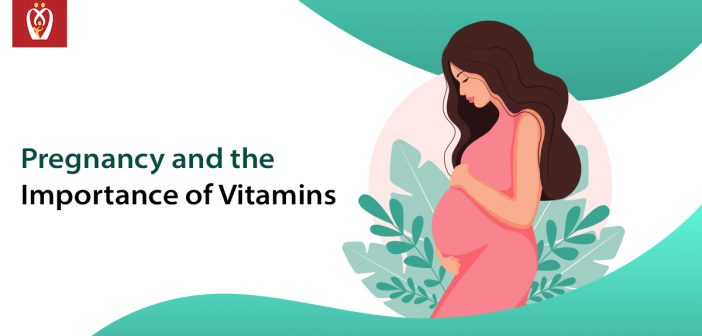One of the simplest things you can do to promote a healthy pregnancy is to take a daily prenatal vitamin in pregnancy. When paired with a well-balanced diet, prenatal vitamins can help ensure that you and your baby get the nourishment they need at every stage of pregnancy.
What are prenatal vitamins, and what do they do?
Prenatal vitamins in pregnancy are multivitamins for pregnant or trying-to-get-pregnant women. They have more of some nutrients that you need during pregnancy than a standard multivitamin. You can get a prenatal vitamin in pregnancy through your doctor, or you can buy them over the counter without a prescription.
During pregnancy, take a prenatal vitamin every day. Prenatal vitamins play a key role in facilitating conception as well.
Vitamins, minerals, and other nutrients in meals help your body stay strong and healthy. Your growing baby obtains all of the nutrition it needs from you during pregnancy. As a result, you may require more during pregnancy than you did previously. In addition, if you’re expecting multiples (twins, triplets, or more), you may need more nutrients than if you’re expecting a single child. Your prenatal vitamins in pregnancy will provide you with the nutrients you require
If you’re a vegetarian, have food allergies, or can’t consume specific foods, your doctor may recommend a supplement to help you obtain more of the nutrients you need. A supplement is a substance you take to compensate for nutrients you don’t get enough of from your diet as well as to help meet the increased requirements of your body during pregnancy. Your doctor may suggest that you take vitamins in pregnancy to help you receive more vitamin D, iron, or calcium, for example.

Pregnancy and vitamin D
Vitamin D regulates calcium and phosphate levels in the body, which are essential for strong bones, teeth, and muscles. When our skin is exposed to summer sunshine ( making late March/early April to the end of September an ideal time to keep up intake), our bodies produce vitamin D.
It’s unclear how much time in the sun is required to produce enough vitamin D to meet the body’s requirements, but if you’re out in the sun, cover up or use sunscreen before your skin turns red or burns.
Some meals contain vitamin D, such as oily fish (salmon, mackerel, herring, and sardines), eggs and red flesh.
Some morning cereals, fat spreads, and non-dairy milk alternatives contain vitamin D. The amounts that are added to these goods can vary and may be insignificant.
It’s challenging to get enough vitamin D from diet alone because it’s only available in a few foods, whether naturally or artificially added.
Why Is It So Important to Take Prenatal Vitamins?
Your body’s nutritional needs are different during pregnancy than they are at other times, and prenatal vitamins in pregnancy are designed to meet those needs. Prenatal vitamins in pregnancy, for example, contain more iron, calcium, and folic acid than standard multivitamins. Folic acid, in particular, is an essential component of any diet, but it is particularly crucial for pregnant women. In addition, folic acid is an essential factor in preventing neural tube birth abnormalities, which is why it is suggested that all women of childbearing age take a folic acid supplement, and pregnant women require more than the general population.
Prenatal vitamins in pregnancy should not be used to replace a well-balanced diet.
Even though a well-balanced diet will provide plenty of vitamins and minerals, you should still take a prenatal vitamin in pregnancy to ensure that you get enough of the nutrients your body and baby require. Furthermore, because prenatal vitamins in pregnancy are designed to assume that the person taking them eats a balanced diet, there is no need to seek additional vitamin supplements in any form, including pills, diet drinks, or fortified smoothies. If you use any of these products, make sure to tell your doctor, so you don’t end up with too much of a good thing.
Vitamin B12 in pregnancy (an essential nutrient for brain development and functioning) rich foods are among the lesser recognised but essential dietary requirements to keep the mother and the baby healthy and safe..
The advantages and requirements of Vitamin B12 in pregnancy
Vitamin B12 in pregnancy is an essential vitamin for a variety of reasons.
- Pregnancy and female reproductive health
- A healthy neurological system promotes normal nerve growth and development.
- Healthy immune system function
- Gives you energy on all levels: physical, emotional, and mental.
Prenatal Vitamins: Over-the-Counter vs Prescription
Prenatal vitamins are available over-the-counter or by prescription from a doctor. Some people prefer to acquire their prenatal vitamins from a prescription. It enhances the likelihood of high-quality prenatal vitamins and allows a vitamin to be given precisely for you if you have specific dietary needs.
If you buy your prenatal vitamins over-the-counter, make sure to read the labels to figure out how much of each vitamin and mineral you’re getting. Look for a prenatal vitamin that contains folic acid, iron, calcium, and Omega-3 fatty acids as a general guideline (specifically DHA). In addition, vitamin C, vitamin D, vitamin E, and zinc are among the essential nutrients to check for. Be mindful, however, that some vitamins and minerals, such as Vitamin A, can be overdosed, so be sure you know the proper quantities for you. If you’re not sure, talk to your obstetrician about it.
Many diet and vitamin supplements offered in grocery and health food stores are not regulated or inspected in the same way prescription prenatal vitamins are. If you buy it over-the-counter, make sure you understand what you’re getting. Buying well-known goods from reliable stores are always the best option.
What is the best time to begin taking prenatal vitamins?
Prenatal vitamins in pregnancy should ideally be taken before conception. Taking prenatal vitamins in pregnancy daily is recommended. This is because the neural tube, which eventually becomes the baby’s brain and spinal cord, develops during the first month of pregnancy, possibly before you even realise you’re expecting.
Are there any side effects of using prenatal vitamins?
The iron in prenatal supplements can cause constipation. To avoid constipation, take the following steps:
- Drink a lot of water.
- Increase the amount of fibre in your diet.
- As long as you have your health care provider’s permission, incorporate physical activity into your regular routine.
- Consult your doctor regarding the use of a stool softener.
- If these suggestions don’t seem to be working, talk to your doctor about other choices.
What we can do for you
In addition to helping you feel supported throughout your pregnancy journey, Nurturey PinkBook is now ready to take another vital task off your plate. With the launch of our carefully curated Pregnancy Nutrition Bundle, we’re aiming to ensure you have one less thing to worry about! This affordable box has been created to aid ongoing nutrition without being confused about the required intake of supplements.
Our Nutrition Bundle is available on our Nurturey PinkBook app. Downloading the app will not only facilitate placing the order but also give you access to some exciting app features.
Our features include intuitive tools to help you navigate the journey of your pregnancy and child’s health.







